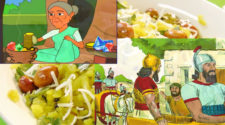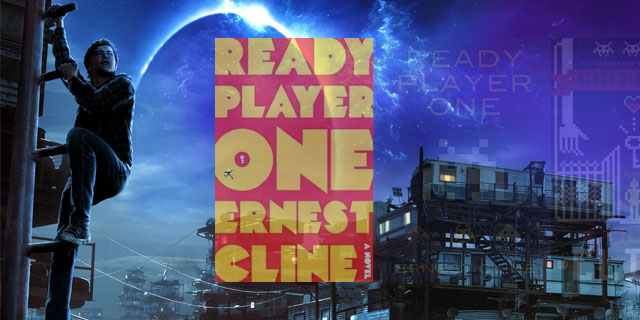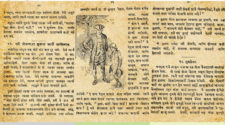The basic theme of Ready Player One has potential. We have all read newspaper reports about couples immersed in games like Age of Empires, Fortnite etc.forgetting to attend their own babies. (https://www.theguardian.com/world/2010/mar/05/korean-girl-starved-online-game)However, we have treated such deep level involvement in games as aberrations. RP1 turns this on its head and imagines a society where everyone is hooked on to games, where not being hooked on is an aberration!
Such a concept has real potential as it raises facinating questions. Beyond ‘real’ and ‘what is real’ and questions related to ‘good’ or ‘bad’ of a hyper connected world, while seeing the movie I thought about Economics. It seems I am digressing; however, the key question could be ‘what makes any activity economically viable?’. The game has people who run into debts while playing a game, the debts are in the virtual world, yet the consequences are in the real world. A whole new credit and banking system has evolved around the game ‘Oasis’. Today with the valuation of virtual companies like ‘Facebook’, ‘twitter’ etc., the idiom doing the rounds is ‘if you are getting a service for free, then, you are the product!’. The idea of what is economically valuable has turned on its head. For years, having a real commodity, a product, had value. Economics revolved around movement of such commodities and products. A person’s economic value got measured as net contribution made towards the final product. It could be a car, a farm produce, anything movable as a physical entity. Only the performing arts were an exception to this, as the value of the theater performance was in the sensory experience of its patrons.
Today’s world is rather complex. How do we value an algorithm? Essentially, what Google search at its core is, an algorithm. Till now these things still could be cross referenced to a physical entity, thus, determining the value indirectly. For example, the value of an AI (artificial intelligence) algorithm is in its proportional contribution to the application of an autonomous car, though vague we have some essence of physical value.
Games turn this argument as they have no physical value (so far!) and we get is a sensory experience. Users determine its value, and thus user base has become an indicator of value for all things virtual. Now the question is how fair is this valuation? A theater performance may be great for the audience; they might get joy, pleasure, new ideas etc., but how can we value it? Earlier games (8/16 bit consoles) were simple, you bought a game, you get limited chances to do a task, if you do the task, you win, if you don’t you lose and you begin again. For today’s ‘Free’ games, most times you do not buy the game, you play a game, and you get points to complete a task, and if you accumulate a certain number of points you get to do another task, get a level up, a power up, a better player, etc. These points are the currency of the game.  A great example of this phenomenon is FIFA Ultimate Team by EA sports, specifically the auction market run within the game. Theoretically the price of an item is market determined, based on theory of demand and supply, and only currency are the FIFA coins. The only way of gaining the coins to play and win football matches in the game. However, we know that a whole legion of players in areas such as Philippines, Bangladesh, China etc., play the game over 18 hrs a day on the game, with sole purpose of gaining these coins. These coins are then transferred to players from USA, Europe by manipulating the cost of an obscure auction item (Quite cleverly!) and a reverse transfer of US Dollar, Euros, or Bitcoins takes place.
A great example of this phenomenon is FIFA Ultimate Team by EA sports, specifically the auction market run within the game. Theoretically the price of an item is market determined, based on theory of demand and supply, and only currency are the FIFA coins. The only way of gaining the coins to play and win football matches in the game. However, we know that a whole legion of players in areas such as Philippines, Bangladesh, China etc., play the game over 18 hrs a day on the game, with sole purpose of gaining these coins. These coins are then transferred to players from USA, Europe by manipulating the cost of an obscure auction item (Quite cleverly!) and a reverse transfer of US Dollar, Euros, or Bitcoins takes place.
The player from the developed world is essentially buying off hours of game time to progress rapidly. And this has spawned a ‘real’ economy around the ‘virtual’ game.
The above info is just in case you are wondering if the premise of RP1 is plausible. It is quite plausible.
However, the disappointing the part of the film is that it does not delve deeper into such inquests. The film stays on the surface, and becomes more of a homage to video games, a fan homage, an ode to the nostalgia of gaming. The conversations are quite superficial. When the game ‘Second Life’ was popular a phenomenon was observed that people successful in the game were quite miserable in the real world and were using the game as an escape. The divergence between the virtual persona of the person and the real persona is potentially an enriching topic to cover from a standpoint of psychology, sociology, yet the film devotes only a couple of scenes. RP1 thus ends up as more of a visual experience, most video game references will be obscure unless you are a fan. And if you want a film that encapsulates the essence of video gaming then ‘Jumanji‘ is a more rewarding experience.
Thus, RP1 left me bit unsatisfied. Even the ending was so light themed: reality is more important than the virtual game, yet it is important only for two days of the week, remaining five you can still spend in the game!!
3D
–
95%
Video Game Essence
–
85%
Ending (Typical)
–
80%
Concept
–
90%
Just Like That
–
90%














No Comment